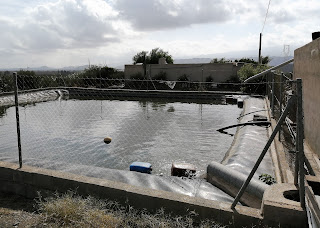Fake News. Bad, right? The Government thinks so and is introducing rules to stop the media from posting fake or manipulated items by setting up a permanent commission against la disinformación - (as they prefer to call it). The commission, says El Español here, is purely PSOE-controlled and without the presence of Podemos (a regular victim of bulos).
These journalistic inventions, as we know, are often used to create anger, disdain or hopelessness in the readers or viewers - for political or economic gain. They are not to be confused with slanted reportage, or even propaganda (using selective facts for manipulative purposes), which happens the whole time, depending on the politics of the media in question. We are talking here about purposely-produced lies.
The current debate is of course whether this is a righteous struggle against these items of hoax news, or simply government censorship (with all the sinister connotations which that supposes).
Some news-services currently use 'fake news' without any particular limit - OKDiario is one of at least a dozen notorious examples. Their recent editorial on the subject at hand says ‘Now it will be Little Franco Sánchez who decides which news is true and which is fake’.
Many more bulos are found in the Social Media (although both Facebook and Twitter have recently taken to some form of ‘fact-checking’ claims published on their platforms).
A local English-language free-sheet famously fired off a hoax news-story last August based on fake interviews with Government ministers. Indeed, it made the pages of Spain’s leading fact-checker here. The point being that fabricated stories like this can cause unnecessary alarm amongst the public.
Fake news is a recognised problem in Brussels, but the EU's strategy against disinformation is ‘aimed towards Russia and China, not as a surveillance of the national media’ (here). Indeed, the official opinion from the European Commission on Spain’s, ah, putative control of fake news is “Any initiative in the field of disinformation must always respect legal certainty and freedom of the press and expression. But we have no reason to think that this has not happened in the case of Spain”.
Maldito Bulo here (the Spanish version of Snopes) is more or less on board with this ‘ambiguous rule’ (yet of the opinion that independent sources – like Maldito Bulo and others – should be the ones to monitor the news and social media), but the press is not at all happy. The AMI (the national association of newspapers) is quoted here as saying 'You can't take away our freedom of expression').
The leader of Vox doesn't like it either: 'The Tyrant Sánchez introduces Censorship', writes Santiago Abascal in a characteristic tweet. Slightly more alarmingly, the Spanish Secret service CNI is also against introducing institutional controls against fake news (for professional reasons, we wonder?).
In short, it is one thing to monitor fake news, but it’s quite another thing to seek to stop it.Maybe the threat of fines coupled with disclosure might help cool the jets of the wily fabulists.

